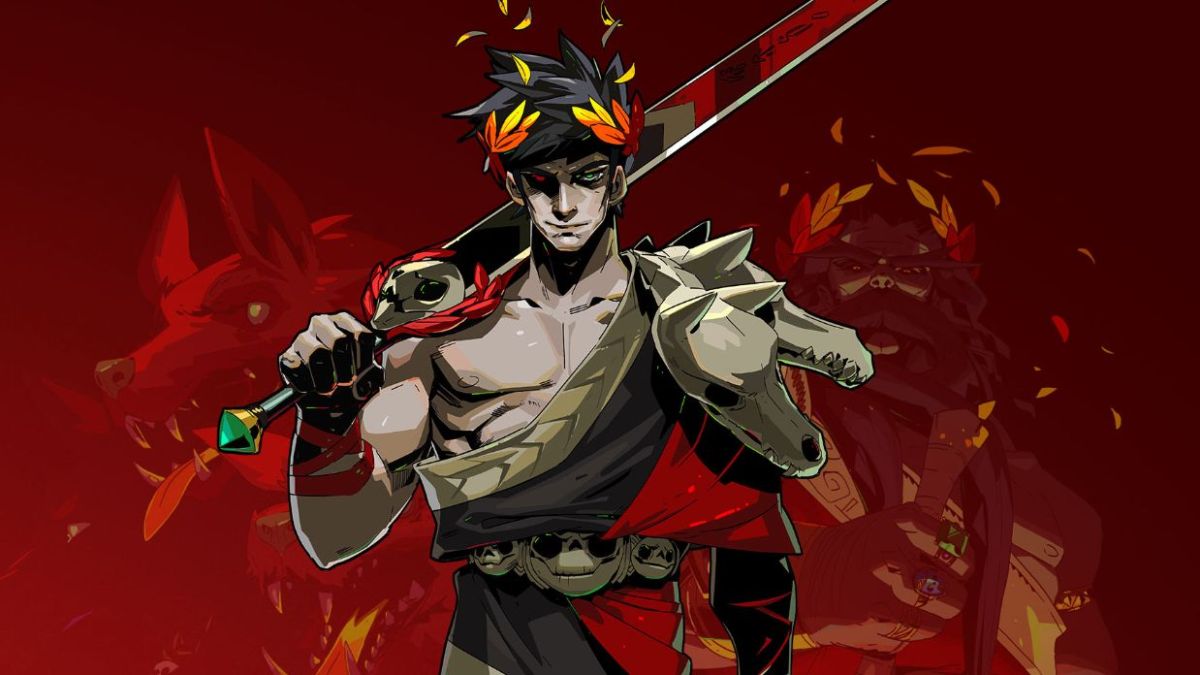If you are tapped into fandom like me, you probably noticed the arrival of Hades on various social media platforms a few months ago. The striking character designs might have made you pause from monotonous scrolling, indicating that they are definitely based in Greek mythology through signs like laurels in the protagonist’s hair and a whole lot of drapery worked into the clothing, but they still have unique flourishes. A variety of characters are dark skinned, including gods and goddesses like Athena and Dionysus. The protagonist, Zagreus, has double colored eyes, one a soulful green and the other featuring an unnerving black sclera with a red iris.
When I saw them, my anxiety kicked in.
I have a shaky relationship with video games. They’re a newer hobby for me and I’m still working through the imposter syndrome that crops up when I am working with middle schoolers and they reveal that they have way more knowledge than me. Even mainstay games like Minecraft sound complicated as my twelve year olds explain to me the different settings and strategies for how they play with each other.
Games are the only form of media that I’ve struggled to keep up with. There’s so many consoles, so many games, and so many hours that are required for you to complete these games. I play inexperienced and bullheaded. I spend the first few hours of the game figuring out how I’m supposed to move effectively. Efficient gamers may be able to complete a game within a certain amount of hours, but those approximations never seem to account for the amount of time I hack and slash at enemies before I realize I actually need to have a strategy. Or worse, I realize a basic mechanism of the game will actually make it easier.
My initial impression of Hades from social media was that it was a game for gamers. Anyone I knew who was livetweeting it reported that they were dying over and over again. It reminded me of Dark Souls, specifically when I watched my ex go through the screen going black and red font stating “YOU DIED.” I think I can impersonate the sounds of the damned that went off whenever they died.
For the first time since I got my Switch, I was ready to write Hades off as a game I couldn’t play. Even with the interesting premise and character designs, it didn’t seem like I was going to get much out of it if I couldn’t get my character to stay alive long enough.
I tried to express this apprehension to friends, who graciously explained to me that dying was kind of the point. It didn’t really make any sense to me. You don’t die in Animal Crossing: New Horizons and while Fire Emblem: Three Houses allows you to go back in time as a glorified undo button, it’s to help you as a player as opposed to furthering the plot. Isn’t dying one of those things you should prevent in life and in video games?
In the midst of my personal crisis regarding this question, a friend of mine decided that I needed to figure this out myself. He generously bought me the game, claiming that he wanted me to get invested in a ship for his own devious, fandom-related purposes. I refused to let him waste his money, downloading the game and booting it up as soon as I could.
Hades is described as a “roguelike dungeon crawler.” If you’re like me and aren’t terribly savvy on video game types, it means that you have to throw yourself into various rooms full of adversaries, destroy them, move onto another room, and eventually fight bosses. In the case of this game, you’re playing as Zagreus, the son of Hades. After spending your life in the depressing open office of the Underworld, you are determined to make your way toward the surface. The objective was clear enough. I had a sword and I slammed on the buttons, taking out every skull, witch, and weird laser shooting crystal that came my way.
I died after three chambers.
The music shifted to a sad riff, Zagreus’s body flopping dramatically as blood sprayed out of him. The game went back to the beginning area of the Underworld and Zagreus muttered to himself as he dragged himself out of the River Styx.
Zagreus’s return to the entryway was uneventful. Nobody waited for him at the mouth of the Styx. Instead, a few characters had exclamation points over their head. Everything fell into place.
There’s plenty of things to do when you end up back in the Underworld. You can talk to characters, learn more about them and get some snippets of lore. You can use items you find in chambers to build bonds with the game’s cast, gain power ups, or clean up some of the fur your precious pet Cerberus has been trailing around the place. You can even sleep and potentially access dream sequences that further the plot in ways you probably won’t pick up as you slog through dungeons.
I played another run and kept plugging at it. Sometimes I would get farther and other times I would die embarrassingly early. Eventually I made it to the first boss, the gorgeous fury Megaera. I only figured out how to beat her when I was on the train, unintentionally yelling as the conductor took my ticket. Even with the slightly embarrassing context, I was proud of myself. At least as proud as you can be when you realize that you have to keep going after you defeat a boss. Even after balking over that I kept going, already proud that I made it farther than I had on any other run.
You can’t win Hades in one shot. It’s legitimately impossible. You have to go through several successful runs, each one providing more and more insight into Zagreus and his family dynamic, both with his immediate family and his extended family of gods and goddesses who assume that he is trying to connect to them by escaping through hell.
You also probably shouldn’t be the best at the game, either. Every run is different. You are given a variety of exits out of chambers, resulting in you experiencing a variety of new layouts and enemies. A variety of gods and goddesses can provide various boons that will drastically impact your strategy. You might also meet people who help you along the way. I am always hoping to find Patroclus when I get to the Elysium level, for example. Not only does he offer some helpful resources for you on your journey, but I’m trying really hard to reunite with his beloved Achilles. In the weirdest twist of fate, I get upset if I don’t see him, even during a successful run. It’s more than enough motivation to keep going.
I am still not an expert on Hades, let alone video games. Sure, it’s fun connecting with people about it, but I am totally inept concerning the terminology. I call weapons stuff like “the paws” and foes “those weird white witches that are hard to kill.” Thankfully, my friends have proven time and time again that they don’t judge me, content to chat with me on voice chat as we try and mostly fail our runs.
I’m grateful that Hades is one of the few things in my life that gives me space to embrace failure. It’s impossible to know if a run will be any good, but it’s worth giving a shot. The worst case scenario is that I die and end up back at the Underworld. At least I can get some tasks out of the way before I try again.
Featured image source: Supergiant Games’ Hades (2020).



